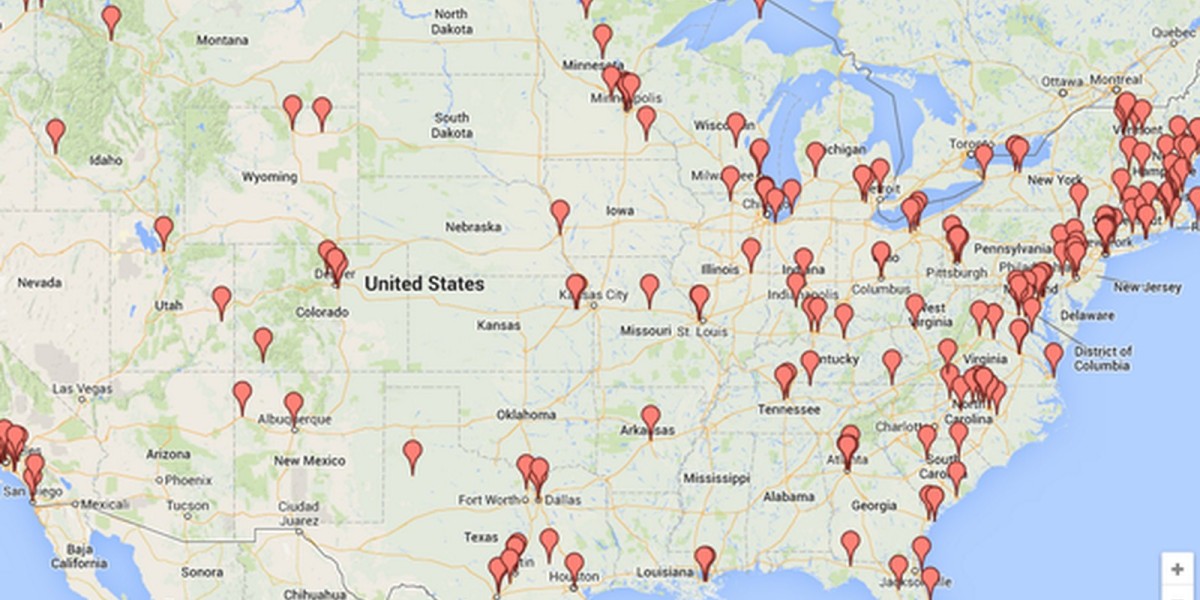In an increasingly data-driven world, decision-making has evolved beyond human intuition and experience. Businesses, governments, and organizations rely on advanced technologies like software intelligence to make faster, more accurate, and data-backed decisions. From healthcare and finance to urban planning and e-commerce, software intelligence is transforming industries by leveraging artificial intelligence (AI), machine learning (ML), big data analytics, and automation.
One of the sectors significantly benefiting from software intelligence is the food industry. With millions of restaurants across the United States, businesses rely on location intelligence software to analyze customer preferences, optimize supply chains, and enhance service efficiency. If you’ve ever wondered how many restaurants in the US, software intelligence provides real-time, precise data to answer such questions, helping businesses make informed strategic decisions.
The Role of Software Intelligence in Decision-Making
Software intelligence refers to the use of advanced computing technologies that process vast amounts of data, analyze patterns, and provide actionable insights. It encompasses AI, ML, predictive analytics, natural language processing (NLP), and robotic process automation (RPA) to enhance decision-making at different levels.
1. Data-Driven Insights
Traditional decision-making relied on past experiences, expert opinions, or limited data sources. However, software intelligence utilizes big data and real-time analytics to offer deeper insights into trends, risks, and opportunities.
For example, financial institutions use AI-powered analytics to detect fraud, predict market trends, and automate trading decisions. Similarly, retail businesses analyze customer purchase patterns to optimize inventory and personalize marketing strategies.
2. Faster and More Accurate Decisions
One of the biggest advantages of software intelligence is its ability to process and analyze massive datasets within seconds. Businesses no longer need to rely on manual calculations or lengthy research; instead, they can access real-time dashboards and AI-powered reports to make quick, accurate, and informed decisions.
3. Predictive and Prescriptive Analytics
AI-driven predictive models help organizations forecast future trends and outcomes, reducing uncertainties in decision-making. Prescriptive analytics goes a step further by suggesting the best course of action based on data patterns and past results.
For instance, supply chain companies use predictive analytics to estimate demand fluctuations, optimize logistics, and prevent disruptions. In healthcare, AI-powered diagnostics predict disease outbreaks and recommend personalized treatment plans.
Industries Benefiting from Software Intelligence
1. Healthcare: AI-Powered Diagnostics & Personalized Treatment
The healthcare industry is undergoing a revolution with AI-driven decision-making. From predicting disease outbreaks to assisting doctors with accurate diagnoses, software intelligence is improving patient outcomes.
AI-powered imaging systems detect cancer and other diseases with greater accuracy.
Predictive analytics help hospitals manage staffing, resources, and patient flow efficiently.
Drug discovery is accelerated with AI models analyzing millions of biological and chemical interactions.
2. Finance: Risk Management & Fraud Detection
Banks and financial institutions leverage AI and machine learning to make data-driven decisions in areas such as:
Fraud Detection – AI systems analyze transaction patterns and detect suspicious activities in real-time.
Automated Trading – Machine learning algorithms predict market trends and execute high-speed trades.
Credit Scoring – AI assesses borrowers' risk profiles based on behavioral and financial data.
With AI-driven risk assessment, banks can reduce losses and enhance financial security, ensuring safe and reliable banking experiences.
3. Retail & E-commerce: Personalized Shopping & Inventory Management
Software intelligence is transforming the retail sector by offering hyper-personalized experiences to customers and optimizing business operations.
AI-powered recommendation engines suggest products based on browsing and purchase history.
Inventory management systems predict stock demand and prevent overstocking or shortages.
Chatbots and virtual assistants improve customer engagement and support.
With real-time data analytics, businesses can boost sales, increase customer retention, and enhance operational efficiency.
4. Urban Planning & Smart Cities: Intelligent Infrastructure
Governments and city planners use software intelligence to optimize urban development and improve public services.
AI-powered traffic management systems reduce congestion and improve public transportation efficiency.
Smart energy grids analyze power consumption patterns and optimize energy distribution.
Predictive crime analytics help law enforcement anticipate and prevent criminal activities.
Software intelligence is key to building sustainable and efficient smart cities, ensuring a higher quality of life for citizens.
5. Manufacturing & Supply Chain: Automation & Predictive Maintenance
Factories and supply chain companies integrate software intelligence to enhance productivity, reduce costs, and minimize risks.
Predictive maintenance prevents machine breakdowns by analyzing performance data.
AI-powered robotics automate manufacturing processes for higher efficiency.
Supply chain analytics optimize logistics, reducing delays and improving delivery times.
With AI-driven decision-making, manufacturers can increase output, reduce waste, and streamline operations.
The Future of Software Intelligence in Decision-Making
1. Autonomous Decision-Making Systems
AI is progressing toward fully autonomous decision-making systems that require minimal human intervention. Industries like self-driving cars, robotic surgeries, and automated financial trading will continue to expand with AI-powered decision intelligence.
2. Explainable AI (XAI)
One of the biggest challenges in AI adoption is its black-box nature, meaning users don’t always understand how AI arrives at a decision. Explainable AI (XAI) will become a crucial area of focus, ensuring that AI-driven decisions are transparent, ethical, and interpretable.
3. AI-Augmented Human Decision-Making
Rather than replacing humans, software intelligence will enhance human capabilities. AI-powered assistants will help professionals in law, medicine, finance, and engineering make more informed decisions faster.
For instance, legal AI tools analyze thousands of case files within seconds, assisting lawyers in finding relevant precedents and improving case outcomes.
4. Real-Time Decision Intelligence
With the rise of 5G, IoT, and edge computing, AI systems will process data in real-time, providing instant insights. This will be particularly useful in areas like disaster management, emergency response, and cybersecurity, where immediate decision-making is critical.
5. Ethical AI & Governance
As AI becomes more integral to decision-making, ethical concerns such as bias, privacy, and accountability will gain more attention. Governments and organizations will implement stricter AI governance policies to ensure fairness and transparency in AI-driven decisions.
With software intelligence transforming industries, data ethics and responsible AI adoption will play a crucial role in shaping the future.
Conclusion
Software intelligence is redefining how organizations, businesses, and governments analyze data, automate processes, and make decisions. From healthcare and finance to urban planning and manufacturing, AI-powered decision-making is optimizing efficiency, reducing risks, and unlocking new possibilities.
With advancements in real-time analytics, predictive modeling, and autonomous AI systems, the future of decision-making will be faster, smarter, and more accurate. However, ethical AI, transparency, and human-AI collaboration will remain crucial in ensuring that technology serves society responsibly.
As businesses continue to leverage AI-powered solutions, tools like location intelligence software provide valuable insights for strategic planning. Whether it’s analyzing market trends or answering questions like how many restaurants in the US, software intelligence is the key to smarter, data-driven decision-making in the digital age.









